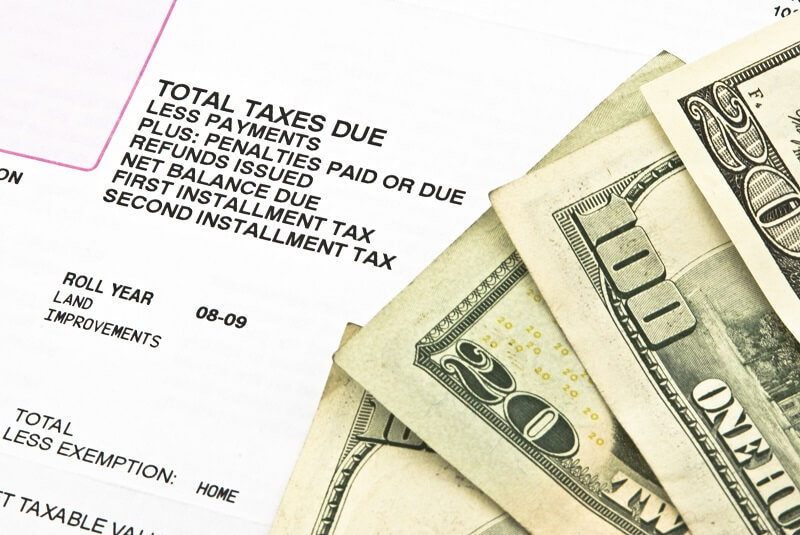Property Taxes: How To Avoid The Big New Tax Hit

The new tax rules are here. How can real estate investors avoid the hits?
While many may benefit under the new Tax Cuts and Jobs Act, there are some provisions which may increase tax liability for homeowners and real estate investors. How can these new tax threats be avoided? How can property investors lower their overall exposure to higher taxes?
Making Property Taxes a Charitable Contribution
High tax states like California, New York, and New Jersey are rushing to find ways to lower the new tax burden on residents and property owners. Unless they do, and fast, it could make them even less appealing. One of the ways to do this being floated in NJ is to convert annual property tax bills into qualifying as charitable contributions. This could enable homeowners to go past the new $10k state and local tax deduction cap, and claim their entire bill on their federal income tax returns. It could be more complicated in execution, but it could help millions.
Challenge & Appeal Your Property Tax Bill
All homeowners and real estate investors should be reviewing and questioning their property tax bills every year. It is one of the biggest areas of loss and waste. In NY an estimated 48% of property tax bills are overinflated every year. Data also shows huge savings for those who appeal, versus rising bills for those who don’t. Failing to do this means bleeding more money every year, while losing returns, and making it harder to sell your property versus the competition.
Mortgage Notes & Private Lending
Those that don’t want to deal with property taxes can switch up real estate investment strategies in favor of note investing and private mortgage lending. Then property taxes and property maintenance is up to the borrower and owner. You get all the perks of passive income and high returns, without actually having to deal with the every day of owning it.
Move to Lower Tax States
Some individuals may just choose to relocate. You can move states or even countries. Then pay less in annual property taxes, or none at all. The same goes for state and income taxes. Or you may just shift your investment focus to states with low overall taxes, and no state income tax.
Move to Lower Cost Areas
Although taxes are complicated, and may only seem more complicated when trying to figure out the new changes, the $10,000 cap on deducting property taxes may encourage more to move to, buy, and invest in lower cost areas and properties.
IRAs & 401ks
Investing in real estate through self-directed IRAs and 401ks can provide more tax deductions, and either tax deferred or tax free gains on real estate investments. Everyone should be leveraging these benefits, and trying to max out allowable contributions each year. Look at all your plan options, as some offer far higher contribution levels than others.
1031 Exchanges
Real estate investors with existing properties may restructure their portfolios using 1031 exchanges. This can allow them to move into new areas, states, price ranges, and property tax zones, without triggering immediate capital gains taxes on profits.
Selecting the Right Business Structures
The new tax plan brings new benefits for real estate business owners. Corporate tax rates are being slashed by the most in decades. Small business owners and solo entrepreneurs organized as sole proprietorships can also benefit from a new 20% deduction on their pass through income. Consult your CPA and find out the best way to structure your income for the deepest tax breaks.
House Flipping & Wholesaling
For those real estate investors that don’t want to have to deal with maintaining property taxes, appealing annual bills and assessments, and figuring out new limits, there is house flipping and reverse wholesaling. You’re in, out, and paid. Someone else gets to juggle the property taxes.
